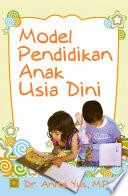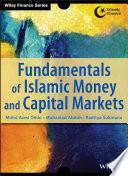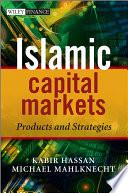Products and Strategies
Islamic Finance has experienced rapid growth in recent years, showing significant innovation and sophistication, and producing a broad range of investment products which are not limited to the complete replication of conventional fixed-income instruments, derivatives and fund structures. Islamic Finance represents an elemental departure from traditional interest-based and speculative practices, relying instead on real economic transactions, such as trade, investment based on profit sharing, and other solidary ways of doing business, and aims to incorporate Islamic principles, such as social justice, ecology and kindness, to create investment products and financial markets which are both ethical and sustainable. Products created according to Islamic principles have shown a low correlation to other market segments and are relatively independent even from market turbulences like the subprime crisis. Therefore, they have become increasingly popular with secular Muslims and non-Muslim investors, as highly useful alternative investments for the diversification of portfolios. In Islamic Capital Markets: Products and Strategies, international experts on Islamic Finance and Sharia'a Law focus on the most imminent issues surrounding the evolution of Islamic capital markets and the development of Sharia'a-compliant products. The book is separated into four parts, covering: General concepts and legal issues, including Rahn concepts in Saudi Arabia, the Sharia'a process in product development and the integration of social responsibility in financial communities; Global Islamic capital market trends, such as the evolution of Takaful products and the past, present and future of Islamic derivatives; National and regional experiences, from the world's largest Islamic financial market, Malaysia, to Islamic finance in other countries, including Germany, France and the US; Learning from Islamic finance after the global financial crisis; analysis of the risks and strengths of Islamic capital markets compared to the conventional system, financial engineering from an Islamic perspective, Sharia'a-compliant equity investments and Islamic microfinance. Islamic Capital Markets: Products and Strategies is the complete investors' guide to Islamic finance.
The book is separated into four parts, covering: General concepts and legal issues, including Rahn concepts in Saudi Arabia, the Sharia'a process in product development and the integration of social responsibility in financial communities; ...










